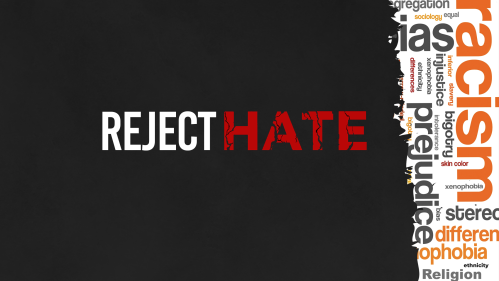
Our Community Commitments
.
Hateful acts aim to intimidate and hinder our goals of an inclusive community.
We reject hatred and call on all members of our community to offer respect in words and actions toward each other, especially when we disagree — that is the difference between being in proximity and being in a community.
As a community, we commit to:
Reject all forms of bigotry and hatred.
It is not enough to denounce hate and bigotry directed at people who look like us or share our culture or experiences. To be a vibrant and inclusive community, we must collectively reject hate. Each of us must take a stand against bigotry and hatred directed at any of us. We can vehemently disagree, but we must insist on each others' dignity as human beings and the sanctity of our lives.
Recognize efforts to dehumanize others.
Dehumanization begins with language describing a group or a person as “less-than” or “subhuman,” such as likening people to animals, aliens, objects, or as inherently morally inferior. When we dehumanize people, it creates a psychological separation, which makes it easier to allow or commit violence against them. We can vehemently disagree, but we must insist on each others' dignity as human beings and the sanctity of our lives.
Resist and disrupt bigotry in the moment.
Daily indignities and other acts of bias disrupt learning and working environments and harm members of our community. The silence of others who witness these vile acts increases the negative impact. Speak up! Commit to calling out everyday bigotry when you witness it. Do not assume that someone else will. Learn how to be an active bystander and accept the university’s call to “Speak Up and disrupt everyday bigotry.”
Reach out to the person impacted and affirm their humanity.
Experiencing hatred is isolating and harmful. Check-in on your classmates and colleagues. A culture of care starts with each of us attending to one another’s feelings and intrinsic needs to be seen, respected, heard, and valued. We cannot stop the hateful actions of others, but we must all play a role in repairing the harm.
Reject Polarization
You always have a choice in conflict to meet the moment with humanity.